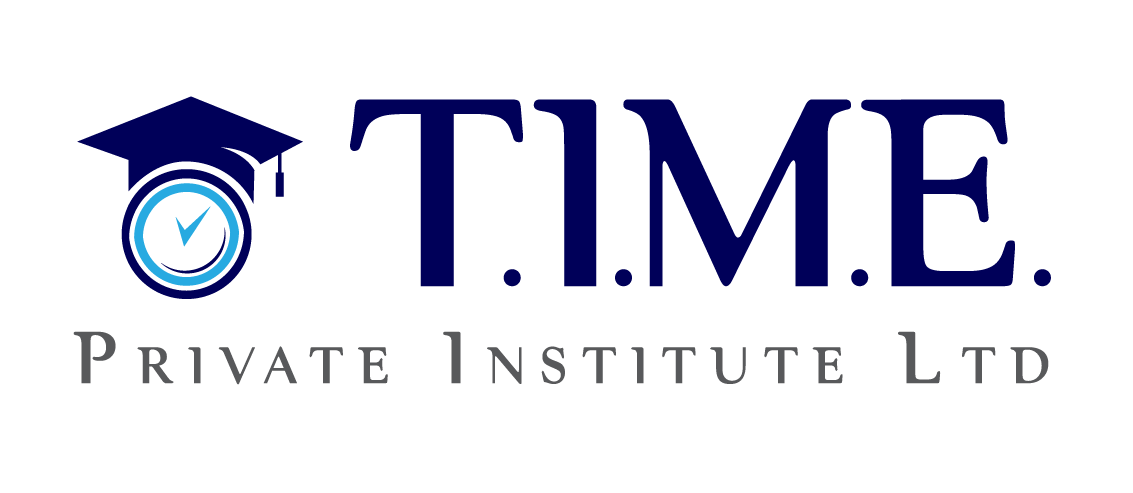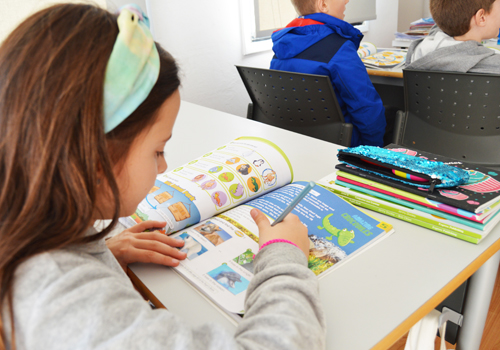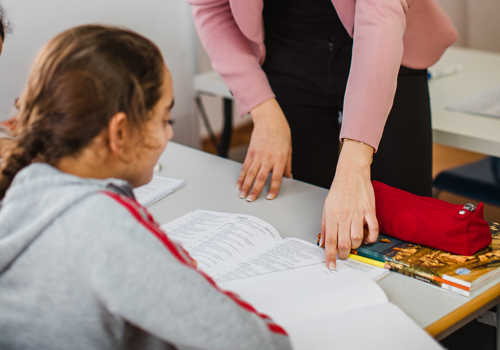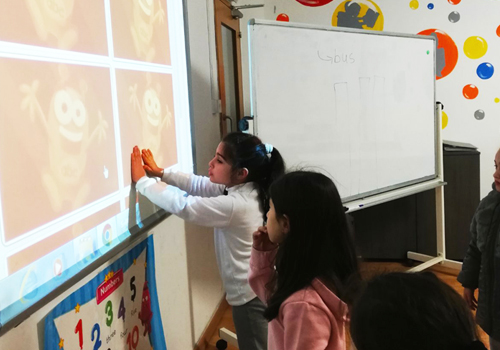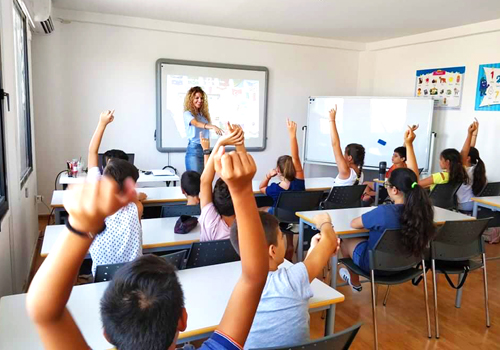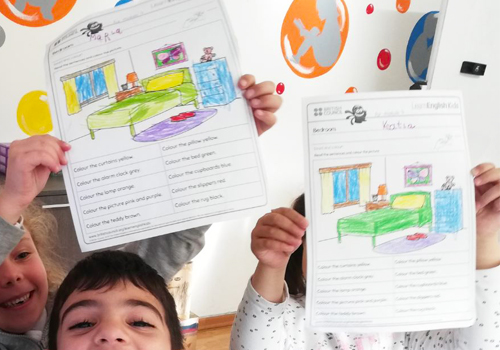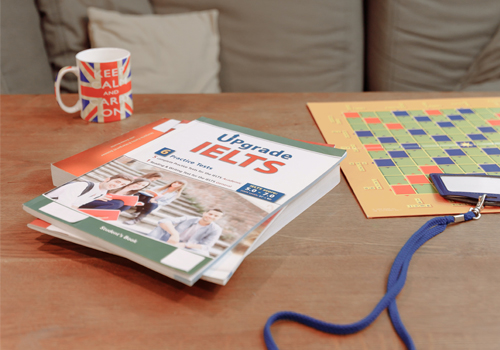English
The English School Cyprus section offers a wide variety of English language learning programs for all ages (4+) based on the Cambridge exams.
At the same time, it offers courses until adult level, covering modules related to other exams such as TOEFL, IELTS etc.
In an amiable and comfortable environment that aims in optimizing the learning experience and facilitate foreign language learning, young and old learn to love foreign languages and to adopt English in their daily lives.
Pre-Junior & Junior for students aged 4+
It is important for young children to learn English as soon as possible. At Pre-Junior, we aim to immerse children into the amazing world of English language and culture through their most desired activity! Play! Our classrooms are enriched with fun activities and interactive games, dialogues and crafts!

Our youngest members learn:
- The alphabet (singing and writing)
- The colors
- The numbers
- Basic English vocabulary around common topics like pets and wild animals, houses, toys, music, and food!
Our youngest members learn the alphabet (song and writing), colors, numbers, and basic English vocabulary around common themes such as pets and wildlife, houses, toys, music, and food! In addition to language skills, you also cultivate collaboration, digital education, and individual expression.
The ‘Pre-Junior’ level is of the utmost importance since from a very young age children are exposed to two (if not more) different languages at the same time. This has been shown to benefit children as their performance improves in both languages at the same time. Depending on the age and level of each child it is assessed whether it is best for them to start from the Pre-Junior or Junior level.
Junior A (Year 1) for students aged 7+
Junior A includes children who have completed the previous level or already have a basic level of English knowledge.
- From the first month, students are taught the alphabet combined with fun activities that help them distinguish between letters and sounds.
- At this level, learning is fun as children engage in various (interactive) activities such as singing, role-playing, online games, etc.
- The ultimate goal of this course is to develop students’ necessary language skills (speaking, writing, comprehension, etc.) through a wide range of common vocabulary and basic grammar that will prepare them for higher levels.
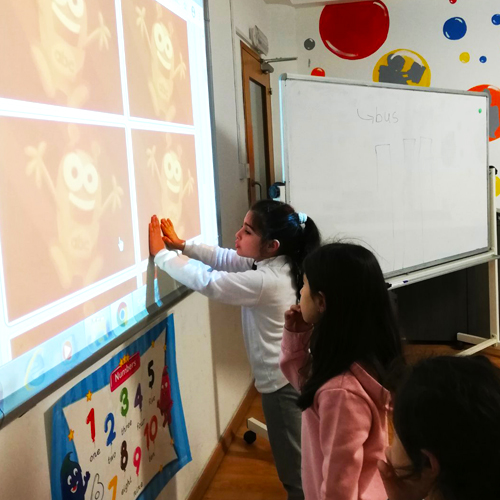
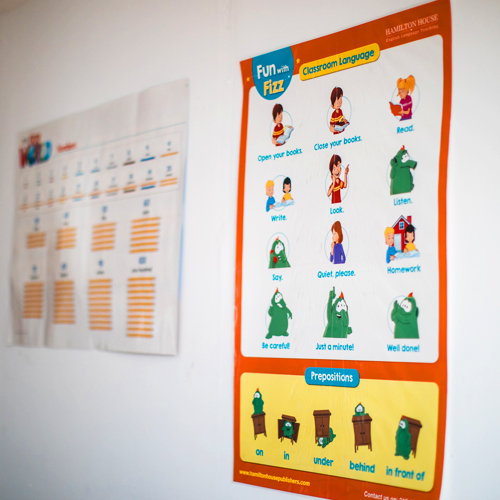
Students begin to produce small sentences while making use of the new vocabulary and grammar skills they acquire.
In terms of oral skills, students learn how to answer simple questions first, and then more difficult ones, in order to prepare for the next level.
Junior B (Year 2) for students aged 8+
The Pre A1 course is based on the Cambridge Young Learners curriculum, aimed at improving English comprehension for students aged 8-11, and preparing them for the Cambridge Young Learners – Starter level (Pre A1) exams.
This level aims at the confidence and improvement of the children’s English.
The topics are taken from topics familiar to the child and focus on the skills needed to communicate effectively in English through listening, speaking, reading and writing.

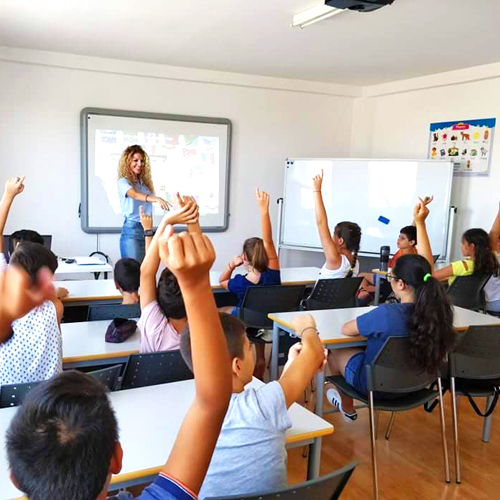
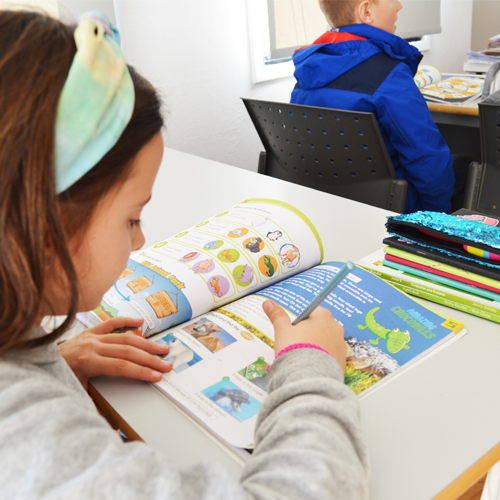
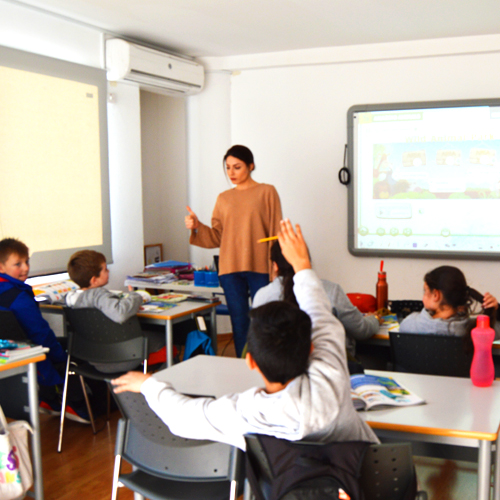
After this course, the learner will be able to:
- Absorb 200+ new words on topics such as: home, family, school games, etc.
- Can understand and use familiar everyday expressions and very basic phrases aimed at meeting the needs of a particular type.
- Can introduce himself / herself and others and answer questions about his / her personal details, such as where he / she lives, the people he / she knows and the things he / she has.
- Can interact with other people in a simple way, provided the other person speaks slowly and clearly and is willing to help.
- Prepare for the Cambridge Young Learners exam – start level (Pre A1).
Movers (Year 3) for students aged 9+
Having attended the previous two levels, things get a little more difficult for students at the 'Movers' level (Level A1).
- Their vocabulary is expanded to include new words, phrases, and day-to-day conversation scenarios around everyday topics.
- Learning revolves around fun reading texts and listening exercises as well as speaking activities that require them to talk about themselves and their family.
- At this level, students are expected to understand the basic instructions and engage in simple daily conversations, understand key announcements and various types of information.
- In addition, in English School Cyprus teamwork skills are developed as students are asked to work in groups (e.g. creating posters, and group discussions).


The structure of the lesson strengthens the confidence that the children have in themselves.
Students’ progress is monitored daily through traditional activities (spelling, reading, etc.) but also clearly formal and informal assessment, written grammar and vocabulary quizzes.
Flyers (Year 4) for students aged 10+
Students at this level (A2 CEFRl) are expected to:
- Understand simple written English
- Communicate in intimate situations
- Understand and use basic expressions
- Interact with English speakers who, however, speak more clearly
- Their vocabulary and grammar is expanded by teaching more units that deal with a variety of common topics such as food, technology, movies, etc.
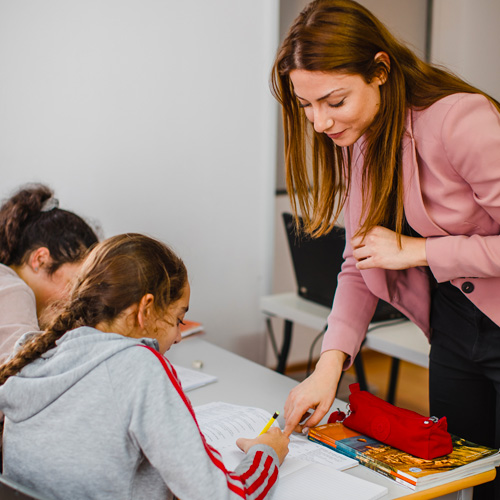

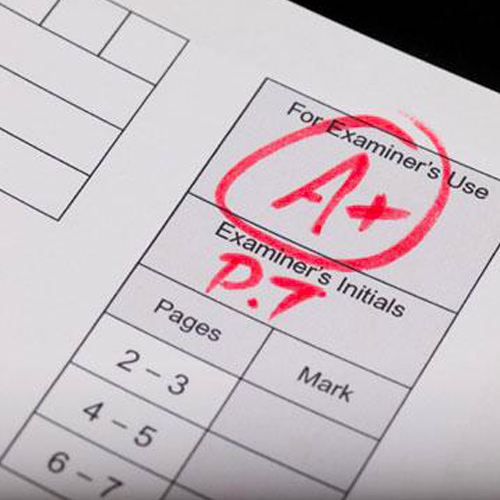
Students at this level (A2 CEFRl) are expected to understand plain written English, to communicate in familiar situations, to understand and use basic expressions, and to interact with English speakers who speak more clearly. Their vocabulary and grammar are extended through teaching more modules dealing with a variety of common topics, such as food, technology, movies, etc.
Students are also introduced to larger writing exercises such as stories based on pictures or descriptions of people, facts, description landscapes, etc. In addition, they are expected to demonstrate an understanding of simple questions and answers to plain questions and answers that deal with Yes / No answers or describe a sequence of events using past tenses taught during the year.
PET (Year 6) for students aged 11+
The PET level prepares students for the highest levels, as at this stage they begin to read both the texts in the book and additional articles on the modules being taught.
In this way, they gain a holistic understanding of the subjects being taught and also cultivate their critical thinking.
In addition, the purpose of these reading activities is to help them identify the author’s basic ideas, claims, and views through the skimming and scanning technique. This is a very important skill that will be really valuable during their later work (both at school and at university)..
The vocabulary is quite advanced; however it is relevant to the needs and interests of the students, as well as to the current trends and issues of adolescence.

As for writing, students learn to respond to emails (formal and informal emails), to write stories and articles using advanced vocabulary and grammar, all enriched with idioms and everyday expressions.
Students are also asked to demonstrate a face-to-face understanding of basic English speaking at a normal pace and to talk about personal stories, describe places or people, etc.
In our classrooms we try to have fun even with the older students using enjoyable games, quizzes and online activities.
IGCSE English as a Second Language for students aged 16+
Cambridge IGCSE English is designed for students who already have the necessary knowledge of the English language and want to consolidate their understanding to advance their education or career.
Through lessons, learners will improve their ability to understand and use English in a range of situations.
The combination of knowledge and skills at Cambridge IGCSE English as a Second Language provides students with a solid foundation for further study. Students will come in contact with a variety of stimuli that will enhance their reading and writing skills.
They will learn to choose the relevant details, to understand the difference between what is stated and what is implied directly, and to produce written speech for different purposes and audiences.
Students will come across different types of conversations in order to develop the appropriate listening skills.
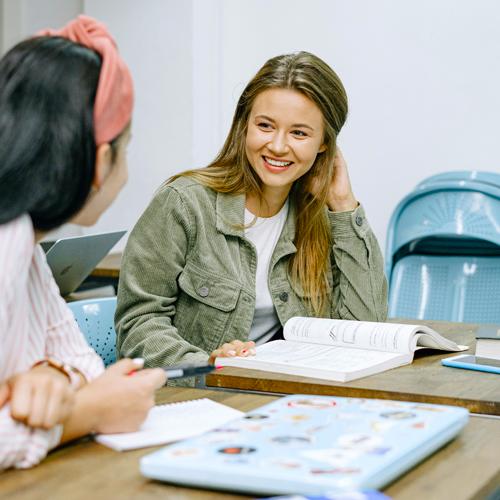
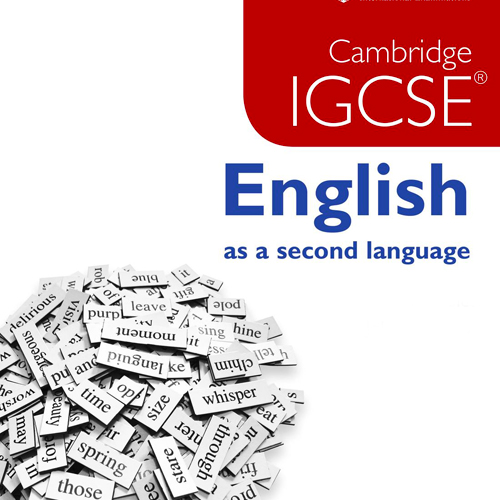
The trainees will participate in discussions on various topics and will develop their skills to respond to different situations and audiences with a degree of accuracy and clarity.
Cambridge IGCSE English as a Second Language will enable students to become independent users of English and to be able to use English to communicate effectively in a variety of practical contexts.
IGCSE Core & Extended
The IGCSE is a demanding 2-year study program, an academic course during which students study to obtain the IGCSE degree. Each IGCSE course begins with a set of objectives to be achieved and a placement in the curriculum. Each student follows an individualized curriculum that meets their individual needs.
The Cambridge IGCSE exam offered by our Tutoring Center is specifically designed for students with a wide range of competencies, including those whose first language is not English. For students, the Cambridge IGCSE helps improve their performance by developing skills such as creative thinking, research and problem solving. It is the perfect medium for advanced study.
Cambridge IGCSE develops students' knowledge, understanding and skills in:
- Thematic content
- Response to various situations
- Research
- Flexibility and responsiveness to change
- Work and communicate in English
- Influence results
- Cultural awareness

What is the difference between IGCSE Core and IGCSE Extended?
In order to answer the above question, different competencies must be take into account, as there is a choice between basic and extended courses in certain subjects.
The IGCSE Core curriculum is within the competence range of the vast majority of students. It provides a complete overview of the topic and is aimed at students who are expected to achieve grades C through G.
The IGCSE Extended curriculum is designed for the most academic. It is aimed at those who are expected to achieve grades A * to E.
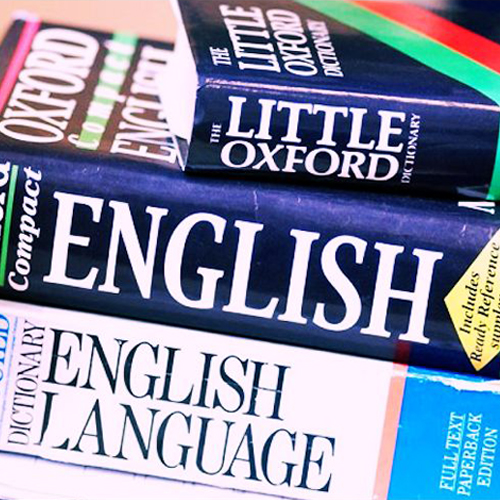

IELTS
The IELTS course is designed for intermediate to advanced level students. It focuses on academic skills, with the aim of preparing students to successfully participate in the IELTS test and aims to improve all four language skills, speaking, listening, reading and writing, as required for the IELTS test. In addition, the course aims to provide students with the ability to understand the different types of questions specifically for the IELTS test, such as answering questions and following instructions.
Reading comprehension
- Comprehension of different academic texts
- Skimming & Scanning techniques and focusing on all types of reading texts
- Identify text elements and, where necessary, reproduce them in their own style
- Understanding texts through questions (11 types of questions – found in the reading) and how to answer them.
Writing
- Training in the correct use of available time
- Writing different types of essays, e.g. argument, causes and effects, etc
- Writing reports with analysis of graphs and charts
- Interpret and describe statistical data using appropriate language and grammar
- Demonstrate improved vocabulary and grammar
Speaking
- Understanding of what is required of candidates in all 3 parts of the exam
- Evaluation and self-correction
- Improve pronunciation
- Formulation, expression and development of arguments using the appropriate vocabulary and grammatical structures
Listening
- Understanding of academic and professional discourse e.g. choose
- Identify the main ideas and distinguish the supporting details of a formal or academic excerpt
- Demonstration of improved listening skills for the understanding of the whole but also of the details
- Practice in understanding questions – 6 types (found in the handset)

Upon completion of this program, the successful student will be able to achieve the IELTS objectives, having developed language skills useful for conducting a language test as well as become familiar with the expectations, format and content of the IELTS exam.
Grammar:
vocabulary development required to describe graphs and diagrams, and grammar (comparative-superlative degree, passive voice, etc.)
Vocabulary:
Vocabulary development related to the most common IELTS topics, such as Environment, Science and Technology, Health, Energy, Education, Transport, Arts, Media and Urbanization.
Assessment and identification
Students complete a written and oral test placement on their first day in the tutorial to place them in the class that is most appropriate for them. Assessment is continuous throughout the course. Students are formally tested every 6 weeks and receive regular feedback from their teachers.
Student progress evaluation strategy
Students’ progress will be assessed on a weekly basis, depending on the feedback given to the class. Grades will not be given intentionally, as the purpose of the comments is to focus students where improvement is needed and to provide support but as an informal method that allows students to move forward.
Students will take an IELTS test each week, giving them instant feedback on their progress.
TOEFL
If you are an international student wishing to study at a university in an English-speaking country, then you may need to obtain TOEFL certification. TOEFL, which is the official name of the test, is an acronym for Test of English as a Foreign Language. The test assesses students’ ability to speak and understand English by analyzing their ability to read, speak, listen and write in English. These are all skills that will be required to conduct your academic studies. The test is used by institutions to ensure that students will be able to advance and succeed in the subject of their choice in a country where the curriculum is taught in English School Cyprus.
The TOEFL preparation course is designed to help students develop the skills needed to obtain the TOEFL: speaking, listening, writing and reading.
Because the course is intensive, rigorous preparation is required on the students behalf.

The Tutoring Center offers in-depth preparation courses for obtaining the TOEFL degree; this helps teachers identify students’ weaknesses, and thus help the student to advance and improve any possible weaknesses, as well as to practice and perfect the basic language skills required to achieve a high score.
The placement test is given at the beginning of the lesson and simulates the TOEFL test to better prepare students for the types of questions they can expect on exam day.
